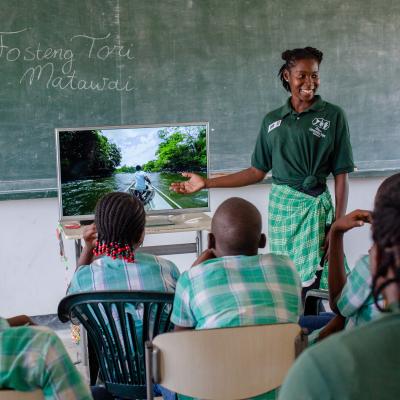
Cyber Resilience for Development (Cyber4Dev)
Cyber Resilience for Development (Cyber4Dev) is an EU funded project of a duration of 42 months in a number of countries across Asia, Africa and South America.


Cyber Resilience for Development (Cyber4Dev) is an EU funded project of a duration of 42 months in a number of countries across Asia, Africa and South America.

Background The UN Environment Programme (UNEP) is implementing a three-year project funded by the European Union (EU): Innovative Business Practices and Economic Models in the Textile Value Chain (InTex). The project has five
A 4 and 6 legged robot "insect inspired" designed and built by Joseph Caristena and the ES Design Team. After the "Proof of Concept" of Heron v2018, here comes the revolutionary 6 legged robot called "Heron v2020". Robots are

The African Union – European Union (AU-EU) Digital for Development (D4D) Hub supports African institutions to create an enabling environment for an inclusive and sustainable digital transformation.
The Intra-ACP Agricultural Policy Programme will contribute to policy incentives for smallholders by increasing production and productivity of selected commercial products using new technologies in communication and in farming in
Facility supporting bilateral dialogues and partnerships under the EU-RoK Framework Agreement, the Free Trade Agreement and the Framework Participation Agreement on crisis management operations. Key Links All EU-RoK Treaties EU
This group explores the lessons-learned from capacity-building on PFM in South Sudan, including findings from the EU Technical Assistance for Sub-national Capacity Building in Payroll and PFM (EUTAPP) as implemented by Ecorys
ES4Y is a Capacity Building project within the framework of the European Commission’s Erasmus + Programme with project partners from Italy, Spain, Belgium, Bulgaria, Argentina, Paraguay, Uruguay and Chile joined to develop a

The ADELANTE Programme has been structured around 8 Triangular Cooperation projects in various thematic areas, in several countries, with all types of actors (more than 50 organisations from 18 countries in Latin America and the

The aim of this evaluation project is to share evaluation experiences within Latin-American public administrations by providing peer to peer technical assistances that enable knowledge-sharing among institutions, ultimately strengthening decision-making processes in specific programs or public policies. The main objective is to institutionalize public policy evaluation as a general practice in the region.